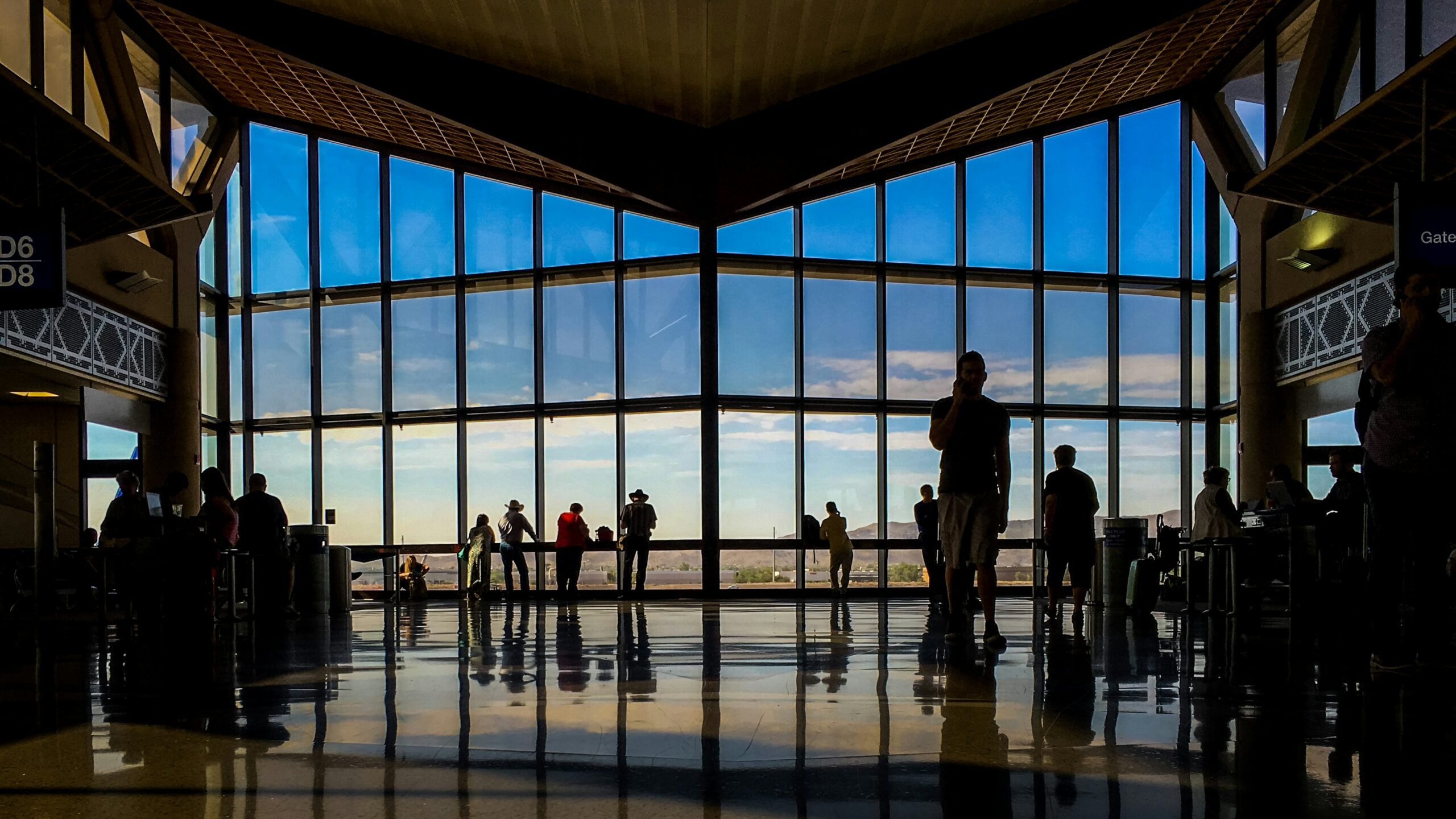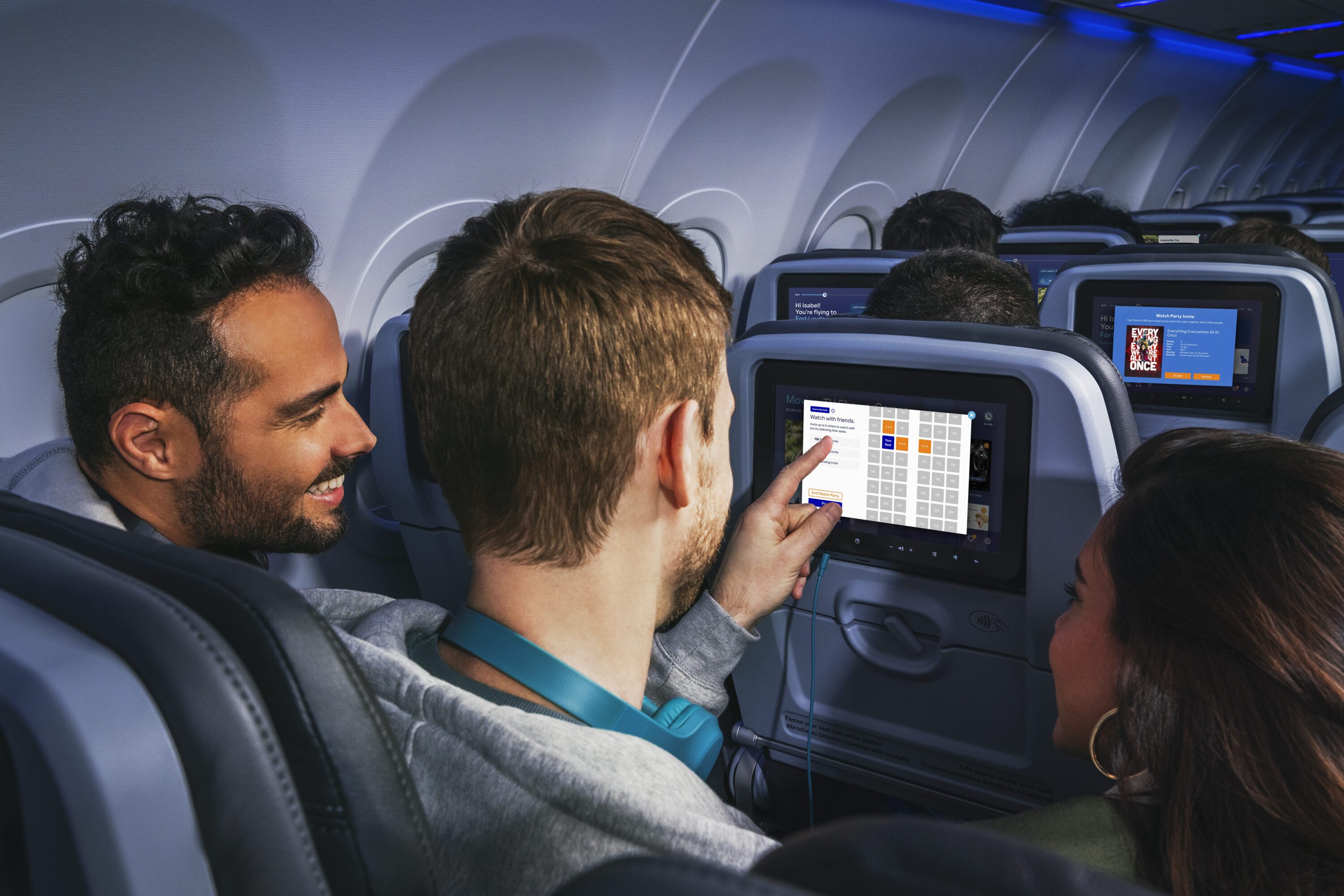Delta and Aeromexico Partnership Is in Jeopardy as U.S. Pulls Antitrust Immunity
The decision comes amid U.S. disapproval of cuts to landing slots at Mexico City International Airport
by Lauren Smith
January 31, 2024
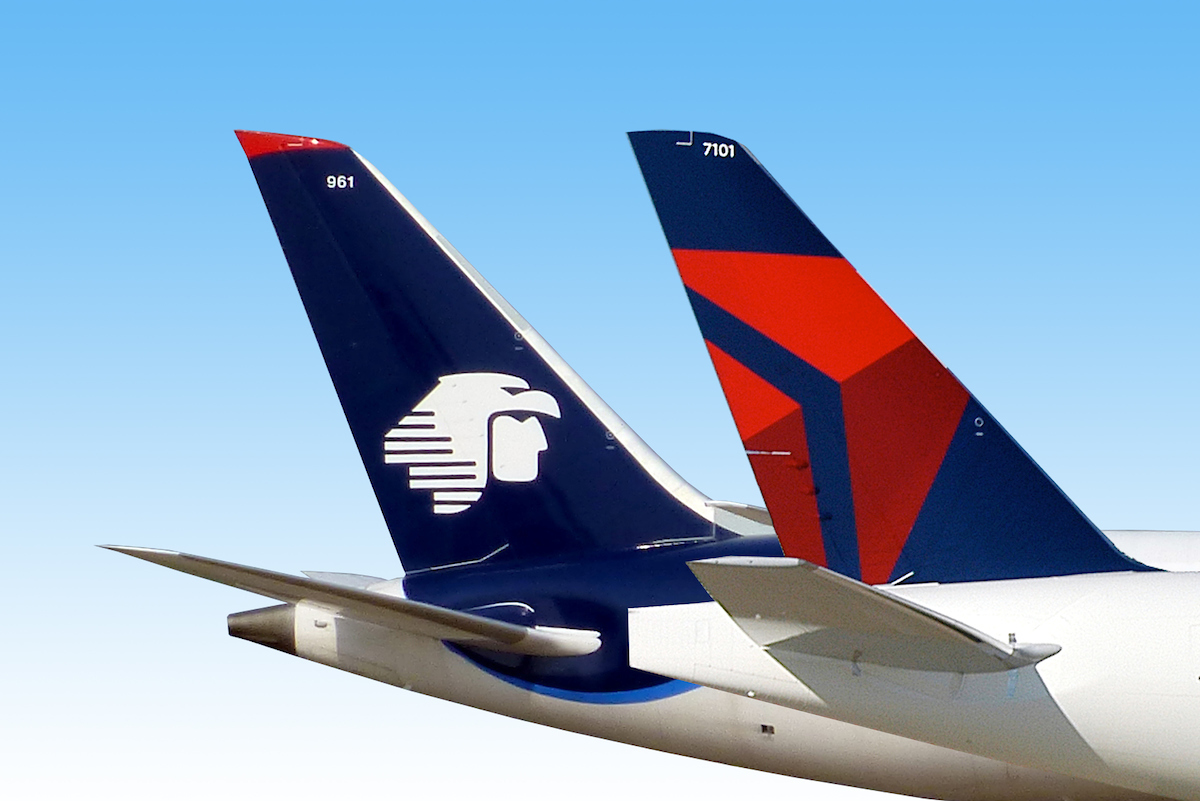
Photo: Courtesy of Delta Air Lines
The U.S. government has announced that it won’t extend antitrust immunity for Delta and Aeromexico’s partnership after the Mexican government cut landing slots at Mexico City International Airport (MEX).
The decision is likely to force Delta and Aeromexico to cancel the agreement under which they sell tickets on each other’s flights. The codesharing pact has enabled both carriers to operate more than 90 daily flights between the United States and Mexico, with Delta due to premiere 17 additional routes this year.
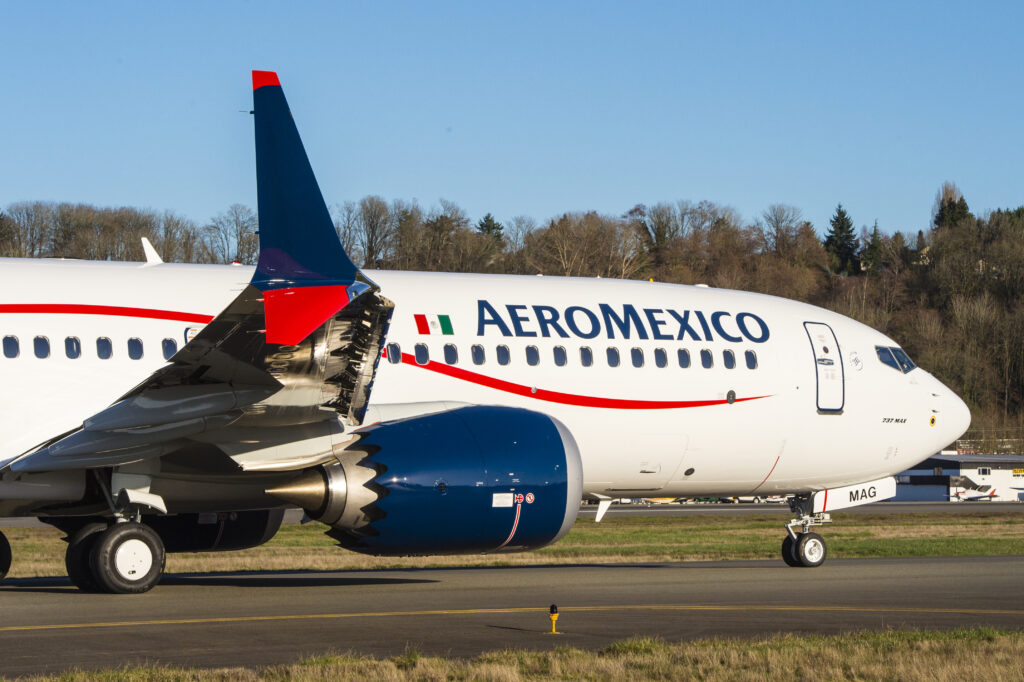
Photo: Aeromexico, Boeing 737 MAX 9. Courtesy of Boeing
The airlines now have until October 26 to wind down their joint venture, the U.S. Department of Transport (DOT) said.
The cancellation of the pact comes amid official U.S. disapproval of Mexican President Andres Manuel López Obrador’s (AMLO) handling of aviation infrastructure in the Mexican capital.
Last year, Mexico banned cargo flights at the Mexico City International Airport, citing congestion. Instead, it redirected cargo flights to Felipe Angeles International Airport (NLU), a newly constructed airport on the city’s outskirts that AMLO has said “belongs to the nation.”
Months later, Mexico also reduced the availability of landing slots for passenger aircraft at MEX, saying the aging airport—Latin America’s busiest—needed renovation. But the DOT said it was told that no additional capacity would be added at MEX.
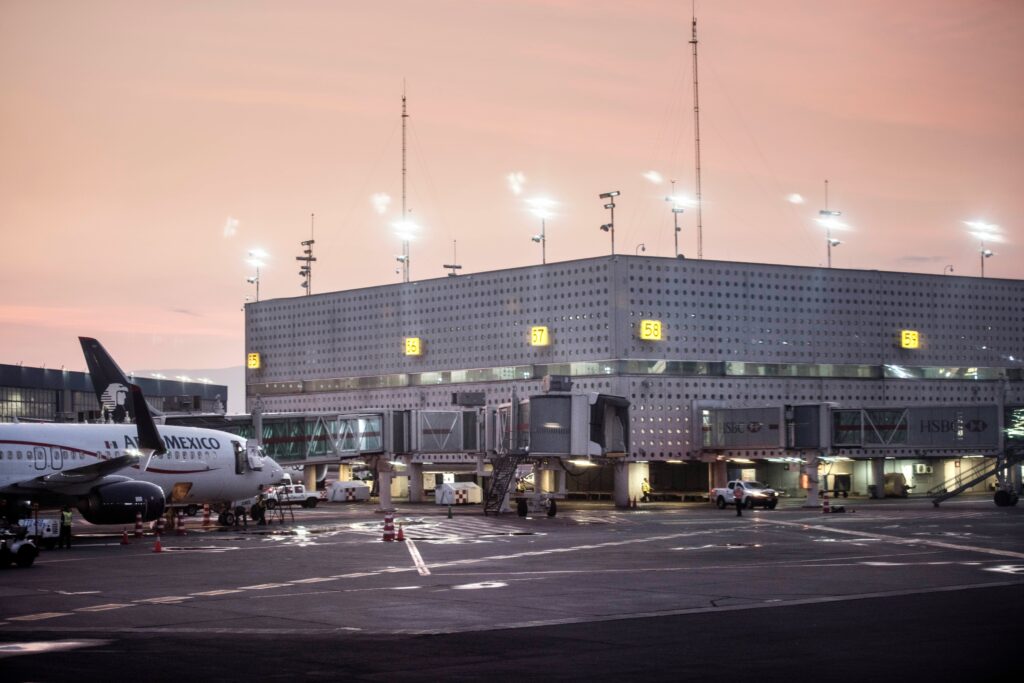
Photo: Mexico City International Airport. Courtesy of Carlos Aranda / Unsplash
The culling of landing slots at MEX has sparked anger from airlines, industry bodies, and the U.S. government. The DOT says the changes harm U.S. airlines operating at the airport and would deter new market entrants. It’s also “fundamentally out of compliance with the existing bilateral air service agreement and international norms,” the DOT said.
In response, U.S. regulators suspended their review of a proposed joint venture between U.S. airline Allegiant and Mexican carrier Viva Aerobus, which would have introduced up to 250 new flights between the countries.
Now, the DOT has withdrawn its support for the pact between Delta and the Mexican flag carrier.
Delta said it was “deeply disappointed” by the decision, which is “unprecedented, regulatory overreach by the DOT” and will harm travelers.
“The Delta/Aeromexico Joint Cooperation Agreement, which is responsible for the launch of 15 routes between the U.S. and Mexico, has been critical to connecting communities and businesses in both countries while generating substantial economic benefits for U.S. businesses,” the carrier said in a statement.
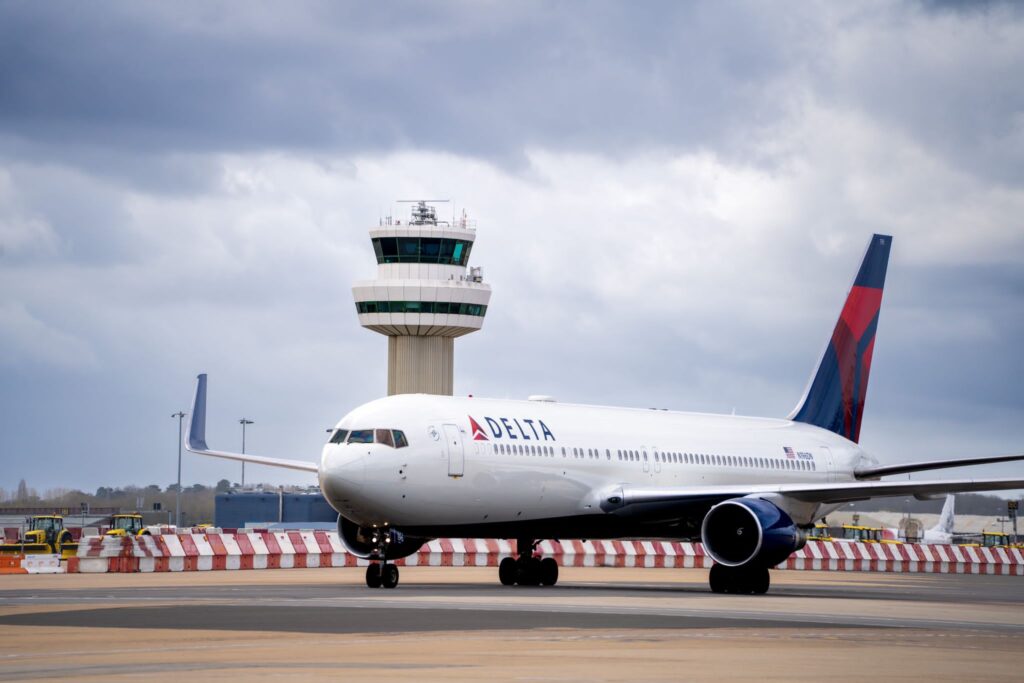
Photo: Delta, Boeing 767-300ER. Courtesy of Delta Air Lines
Brett Snyder, the editor of Cranky Flyer, has explained that just a few months after Mexico’s safety rating was raised to Category 1, and when Aeromexico and Delta were finally able to plan their future together, they have now been forced to dismantle everything.
According to Snyder, Delta, which has invested hundreds of millions of dollars into Aeromexico before the pandemic and then during bankruptcy, is likely to be absolutely livid with this development.
Delta currently owns about 20 percent of the Mexican airline and will not be able to coordinate the way it had envisioned. Snyder believes that both airlines can now only have a lengthy relationship with codesharing, frequent flier partnerships, and their SkyTeam membership. “It just can’t coordinate network and pricing, which is a real blow for the company,” he notes.
Aeromexico has not yet commented on the DOT’s decision, which Delta emphasized is “tentative.”
